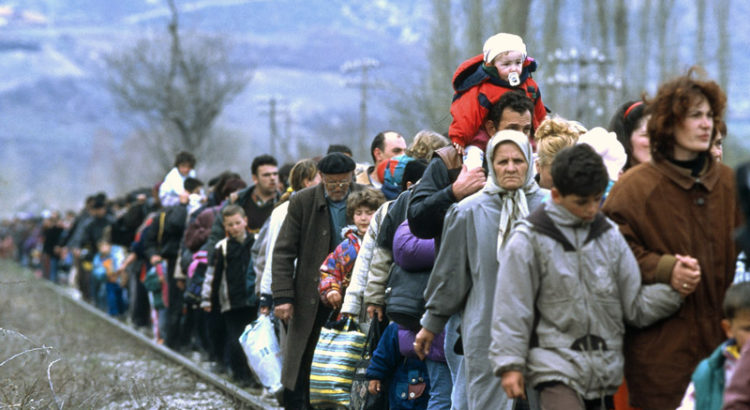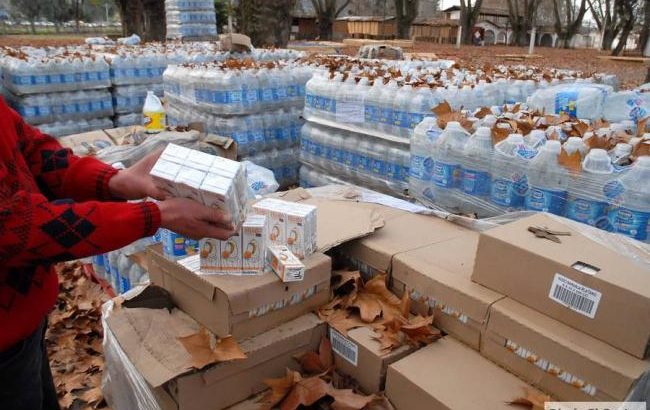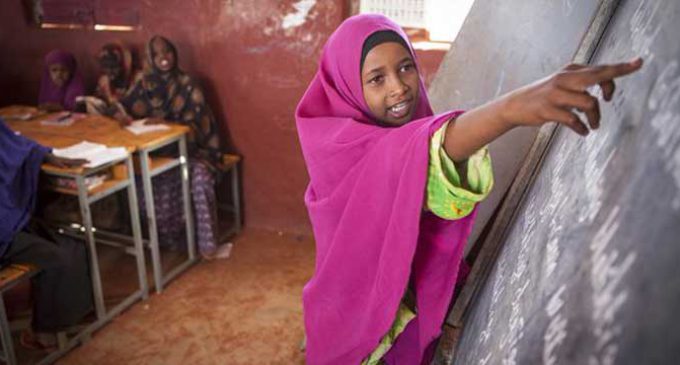Grecia/Enero de 2018/Fuente: UNFPA
Resumen:
Hace más de dos años, Grecia se convirtió en el centro de una crisis de refugiados y migración, con cientos de miles de personas ingresando al país, muchos de ellos arriesgando la muerte para escapar de la guerra, la persecución y la privación. Solo en 2016, llegaron a Grecia unas 173,000 personas, lo que desborda comunidades y recursos locales.
Muchas de estas personas llegadas eran mujeres y niñas con graves necesidades de salud reproductiva, incluidos los servicios de salud materna y el manejo clínico de la violación.
El UNFPA lanzó una respuesta de emergencia, desplegando trabajadores humanitarios y clínicas móviles para brindar atención esencial de salud reproductiva.
Over two years ago, Greece became the centre of a refugee and migration crisis, with hundreds of thousands of people streaming into the country, many of them risking death to escape war, persecution and deprivation. In 2016 alone, some 173,000 people arrived in Greece, overwhelming local communities and resources.
Many of these arrivals were women and girls with serious reproductive health needs, including maternal health services and clinical manage of rape.
UNFPA launched an emergency response, deploying humanitarian workers and mobile clinics to provide essential reproductive health care.
“At the start of any crisis, it is critical to ensure that women, girls and other vulnerable groups have access to sexual and reproductive health care, including the prevention and treatment of sexual violence, prevention of HIV and sexually transmitted infections, and comprehensive obstetrics care,” said Felicia Jones, a UNFPA sexual and reproductive health coordinator.
Many refugees and migrants in Greece have serious reproductive health needs. Photo by Lynsey Addario for Time.
Over 1,000 consultations were provided in the last months of 2016 alone.
Now, UNFPA is handing over operations to the Government of Greece.
The crisis is far from over; some 48,000 refugees and migrants are estimated to be in Greece today. But intensive partnerships and training efforts have strengthened local actors’ abilities to provide these life-saving services, benefitting both refugees and host communities.
Enormous vulnerabilities
Refugee and migrant women face enormous vulnerabilities. Uprooted from their homes, separated from their support networks, they often travel along dangerous routes. They have little privacy, sometimes sleeping in the open.
Gender-based violence is commonplace, but rarely reported.
Between July 2016 and June 2017, 350 refugees or migrants reported experiencing gender-based violence, including sexual assault, forced marriage, physical assault, psychological abuse, denial of services, trafficking and rape – but the actual number of cases is likely to be significantly higher.
A case management training in Greece. Photo by UNHCR and UNFPA
Sexual violence survivors require a package of clinical care, including treatment of wounds, emergency contraceptives, post-exposure prophylaxis to prevent HIV transmission, as well as access to psychosocial and legal support.
But before the onset of the crisis, Greece did not have protocols for the clinical management of rape that were in line with international standards.
UNFPA began training medical practitioners, social workers, psychologists, camp managers and others on providing psychological first aid, case management, clinical management of rape, and the provision of sensitive and confidential services for survivors.
Police, lawyers and others were also reached with trainings about the sensitive handling of sexual and gender-based violence.
“The training is practical and tailored to suit the situation in Greece,” said a participant in a case management training in Ionnina, Greece.
Urgent reproductive health needs
The need for maternal health care and other reproductive health services was also staggering.
Tayma Abzali, 24, with her baby Helen, in a tent in November of last year. Lynsey Addario for Time.
In a typical refugee or migrant population, 4 per cent of women will be pregnant – meaning thousands of women were in need of care.
At the onset of the crisis, UNFPA supported the deployment of two mobile reproductive clinics, which provided prenatal and post-partum services, as well as other reproductive health care such as family planning. And UNFPA provided medical commodities to outreach workers from the Hellenic Centre for Disease Control.
But to ensure services are sustainable, UNFPA began tailoring trainings – on sexual and reproductive health, adolescent sexual reproductive health, and life skills education – to local needs.
“Being trained in sexual and reproductive health provides me the knowledge to support and better advise the beneficiaries of my programme,” said the participant of one training.
Moving forward
Since 2015, UNFPA has trained 1,350 people in Greece and 200 from the wider region. Many of those trained are now serving as trainers.
These efforts are “important for the refugees and even for the Greek people,” said one health expert, noting that services will improve for local communities, as well.
UNFPA’s efforts were conducted in close collaboration with the Government of Greece, including the General Secretariat for Gender Equality. Until late 2016, support was also received from the United States Bureau of Population, Refugees, and Migration and the Government of Norway.
On 14 December, UNFPA handed over reproductive health operations to the Government of Greece in a ceremony held in Athens.
“The first step has been done. Trained staff and protocols exist now in Greece,” said a medical coordinator who participated in one of the training exercises, adding that it is now up to local actors to keep up the momentum. “If these protocols will remain only a theory, without being implemented in the field, then all these trainings and trained staff will be useless.”
Fuente: https://www.unfpa.org/news/empowering-local-first-responders-reach-refugee-and-migrant-women

















 Users Today : 32
Users Today : 32 Total Users : 35460335
Total Users : 35460335 Views Today : 47
Views Today : 47 Total views : 3419075
Total views : 3419075